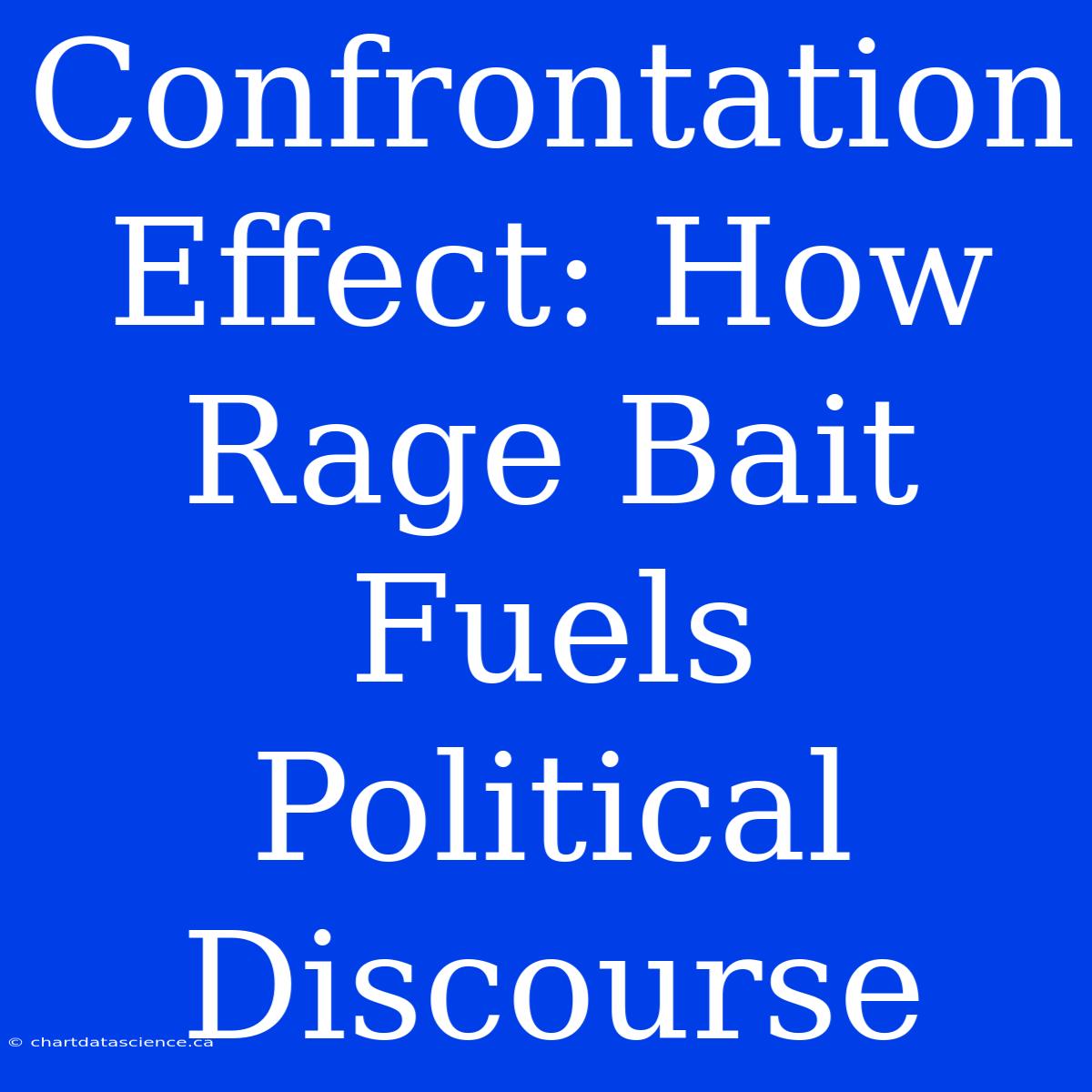Confrontation Effect: How Rage Bait Fuels Political Discourse
We've all seen it. Those inflammatory headlines designed to provoke outrage and drive engagement. From clickbait articles to social media posts, rage bait has become a pervasive force in our digital landscape, especially within the realm of politics. But why are we so drawn to this content, and what are the consequences of its constant presence?
The answer lies in a psychological phenomenon known as the confrontation effect. This effect explains how we're more likely to remember and react to information that challenges our beliefs, even if it's presented in a negative or hostile way. Essentially, our brains are wired to pay attention to anything that threatens our worldview, sparking a fight-or-flight response.
Think about it: A headline screaming "Liberal Politicians Plotting to Destroy America!" is far more likely to grab your attention than a nuanced, factual article about policy proposals. This is because the rage bait appeals to our primal instincts, triggering emotional responses that override rational thought.
This effect is amplified by the echo chamber effect, where we're constantly surrounded by information that reinforces our pre-existing beliefs. Social media algorithms, in particular, exacerbate this issue by showing us content that aligns with our existing views, making it even harder to encounter dissenting opinions.
But the consequences of this constant exposure to rage bait are far from benign. It fosters polarization, where opposing groups become increasingly entrenched in their beliefs, making meaningful dialogue and compromise virtually impossible. Moreover, the emotional intensity fueled by rage bait can lead to increased aggression and hostility, both online and offline.
The confrontation effect, coupled with the echo chamber phenomenon, explains why rage bait is so effective in driving engagement. But we need to be aware of its potential dangers. We must consciously resist the temptation to click on inflammatory headlines and actively seek out diverse perspectives.
Here are some tips to combat the negative effects of rage bait:
- Be mindful of your information sources: Pay attention to the bias of the media outlets you consume.
- Seek out diverse perspectives: Engage with content that challenges your worldview, even if it's uncomfortable.
- Think critically about what you read and share: Don't blindly accept everything you see online.
- Be aware of your own emotional reactions: Take a step back and consider why you're feeling a certain way.
Remember, informed and respectful discourse is essential for a healthy democracy. By understanding the confrontation effect and its role in fueling the spread of rage bait, we can become more discerning consumers of information and contribute to a more constructive political landscape.

